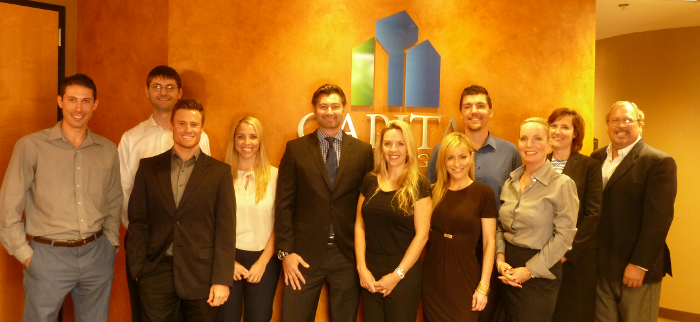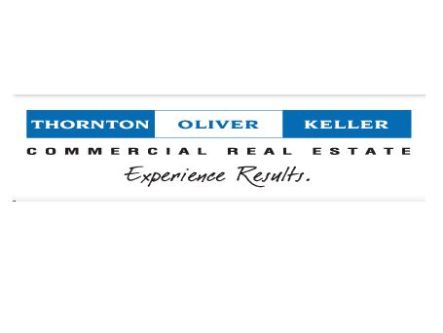For decades, commercial property managers regarded information technology as a support function, one that was almost always isolated from the strategic direction of the business. Today, with virtually all property stakeholders expecting greater operational control and transparency, relegating IT to a peripheral or firefighting role is no longer an option. The consensus among Yardi’s Dhar Sawh and other experts who participated in a recent Realcomm-hosted webinar holds that IT, as a company’s technology implementation gatekeeper, should command status as a full partner and value generator. Sawh defined the purpose of a technology strategy as satisfying owner and investor expectations for favorable revenue, cost and risk mitigation outcomes. Performing the business operations necessary to achieve them requires visibility into revenue, occupancy and other indicators that spans the organization. That, in turn, requires connected solutions that unify people and resources, from vendors and employees all the way up to investors, in a common vision. He also pointed out that extracting cost and revenue benefits from current operations, rather than actively pursuing new yields, is the most reliable generator of investor returns late in an economic expansion cycle such as the current one. IT drives those results with technology that’s scaled across the organization and empowers stakeholders with automation and self-service capabilities like online invoice processing, payments and work orders. Another example of technology occupying a place at the core of a business is active sensors that monitor a space and preheat or precool the area before it’s occupied. This allows building owners to avoid charges for utility usage at peak times. “This is an example of integrating technology for the benefit of business objectives,” Sawh said. Once invested as a full partner in the business, IT can create positive experiences for owners and occupants by elevating...
Midsized + Mighty
Midsize Tenants Dominate Industrial
Midsize tenants are driving the demand for industrial space in metropolitan areas. As a result, their needs shape the direction of and development within the industry. Major Markets for Midsize Tenants Midsize industrial tenants occupy space from 50,000-sq.-ft. to 300,000-sq.-ft. Yardi client and real estate services firm Avison Young lists key markets for midsize tenants as Indianapolis, Chicago, Dallas and Atlanta. Between January 2017 to June 2019, Chicago tenants signed 872 industrial leases averaging about 111,629 sq. ft. In the same timeframe, Atlanta tenants signed 320 industrial leases with an average size of 113,243 sq. ft. Similarly, the average space for tenants in Dallas is recorded as 107,265 sq. ft. Indianapolis has offered some of the largest parcels with industrial tenants signing 41 leases averaging about 146,341 sq. ft. “Indianapolis’s stability, low cost of doing business, and central location are attractive to distribution tenants and investors alike,” explained Sean McHale, principal at Avison Young’s Indianapolis office in an interview with NREI. “We expect that rental rates will remain steady or rise slowly and cap rates will compress well into 2019.” Making Room for Last Mile Delivery Midsize boxes are in high demand due to an increased need for last mile delivery sites. The price for such spaces has increased from $59.56 per sq. ft. in June 2017 to $68.71 per sq. ft. in June 2019. “I think we are going to continue to see a focus on overlooked infill sites being repurposed to meet the needs of last mile logistic tenants,” reports Chris Nebenzahl, operations manager for Yardi Matrix. “These could be vacant retail centers and big box stores or outdated back office buildings.” He adds, “Last mile and ecommerce tenants are here to stay and getting much of the attention, but I wouldn’t...
One Year On
Wesgroup Properties Uses Yardi
“We wanted innovation and efficiency,” Sandeep Manak, chief financial officer for Wesgroup Properties LP, said in November 2016, when his company announced its adoption of products from the Yardi Commercial Suite. “We wanted a platform that integrated various departments so they could work more collaboratively.” Other priorities included lower operational costs, more accurate budgeting and efficient management of an existing commercial and growing multifamily portfolio. One year later, how has that plan played out for Vancouver, British Columbia-based Wesgroup, a fully integrated real estate owner, operator and developer with 61 commercial and residential income-producing assets? “We have made good progress,” Manak says, starting with better access to lease and portfolio data. “Centralizing all lease and financial records in Yardi Voyager gives us a holistic repository of information that is easily accessible. We don’t have to look at different places or worry about version control or broken links. We can drill down to lease clauses and very quickly understand an asset’s performance.” Wesgroup reduced costs by simplifying invoice processing with Yardi Procure to Pay, which automates the process all the way to vendor payment. “We pay several thousand dollars every month for document storage. Storing images in Yardi Voyager significantly reduces these expenses in the long-term,” Manak says. Besides that, he adds, “approvers have immediate accessibility to vendor relationships by being able to review a vendor’s account and approve invoices for payment from the convenience as they are always out and about.” Meanwhile, Yardi Fixed Assets helps Wesgroup track assets that have varying amortization schedules. “Previously each property had its own schedule — for example, roofs amortized differently at different properties when the materials used to build them were identical, in the same geographical environment and were installed by the same builder. Fixed Assets automates...
Growing with Yardi
Capital Asset Management
For Phoenix-based Capital Asset Management, use of Yardi software has been a key aspect of coming of age as a company. “Yardi has been one of our selling points,” says Aaron Strole, owner and founder of the company along with his wife, Rachelle. “When we talk to our current or prospective clients, we tell them that we use state of the art software – the best in the industry.” A full service firm that provides due diligence, underwriting, brokerage and property management services, the Stroles started their business in the depths of the recession. A client was looking for a reliable property manager for an asset that was on the market but not moving, and Capital Asset Management was born. Seven years later, the property management arm of the Capital Companies looks after 40 properties, and is now expanding its leasing operations. Assets are located in Arizona, California, and Nevada. “The maturation of our company has been key,” Strole said. “We aren’t just doing property management on the side, we’ve become a full service firm and what we’re doing for our clients is really good.” While growing their portfolio and span of operations, Capital Asset Management has evolved its software platform as well. The company moved quickly from Yardi Genesis to Voyager 6, and then upgraded to the Yardi Commercial Suite and a full cloud-based platform in 2014. “7S is a true cloud version of Voyager. We don’t have to ask for the updates, they are rolled out for us. Everything is available wherever you need it. I carry around my iPad now, all the time, because I don’t want to carry around my laptop. And I can get access to everything in Voyager that I need,” Strole said. A former IBM Management Consultant, Strole is working to make his company as paperless as possible. He moved his corporate email to a cloud-based server and eliminated any need for in-house technical support. The result, he says, is peace of mind. “What I like about it is that when everything is hosted in the cloud, things tend to not break. We were having our on-site server go down and we once lost all of our server data. It took three days to get the backup replication up and running. You don’t want to have tell your clients that you can’t send them the report they need. Now, if it does break, I call Yardi or Microsoft,” Strole said. He next plans to look into paperless invoice remittance via ACH transfer. Another aspect of the Voyager 7S platform that Capital Asset Management is happy with is the Report Scheduler functionality. “One of our biggest clients, a national company, told us that they asked every one of their property managers around the country to use the same report package that we had been creating for them in Yardi,” said Strole. For more information on The Capital Companies, visit http://thecapitalcos.com/ For more information on Yardi, visit...
Thornton Oliver Keller...
Adopts Yardi Commercial Suite
Thornton Oliver Keller is preparing for anticipated portfolio growth by eliminating manual processes, streamlining budgeting, and improving client services and reporting. To accomplish these objectives, Idaho’s largest commercial real estate firm recently selected Yardi Voyager® 7S, a mobile-enabled Software as a Service platform for commercial property management and accounting, and products from the Yardi Commercial Suite™. “Replacing our legacy platform with the integration and automation available in Voyager will help us do a better job of managing the complex financial information of our portfolio of properties. For example, we’ll be able to report to clients easily and quickly, which is important in a business that relies on accurate real-time data,” said Josh Paul, director of information technology for Thornton Oliver Keller. Thornton Oliver Keller will shorten the cycle time of a key business operation—budget preparation—with Yardi Advanced Budgeting & Forecasting™, an automated solution that delivers accurate budget projections for revenue and expenses using tenant lease data drawn from Yardi Voyager. “We create about 160 budgets for our properties at year-end, which is a huge data-collection job. Advanced Budgeting & Forecasting will remove the manual steps and make the budgeting process significantly shorter and less labor-intensive,” Paul said. Referring to other Yardi Commercial Suite products, Paul said, “We’re excited to give our tenants an ACH payment option through Yardi Payment Processing™ and automate bank deposits with Yardi CHECKscan™ as well. One major benefit will be consolidating the entire portfolio to one type of scanner instead of using various ones that are often incompatible.” Yardi Procure to Pay™, an end-to-end, paperless invoice processing and procurement system, will similarly reduce manual processes for Thornton Oliver Keller by consolidating spend using online catalogs and eliminating paper handling with online invoice approval workflows. “Yardi is pleased to help Thornton...





